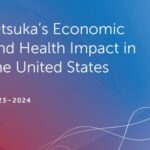NEWS
COVID-19 and Nursing Homes: National Updates and Early Evidence on the Second Wave
Evidence from the initial coronavirus outbreaks within the United States has shown that the fate of nursing home residents is tightly linked to the severity of the virus within the nursing home’s state. With a “second wave” of COVID-19 in many southern states and a host of policy changes, it is worth investigating whether the evidence suggests this vulnerable group is now better protected.
Toward a Better Employee Retention Tax Credit
Lawmakers in both chambers of Congress have staked out positions on expanding the Employee Retention Tax Credit (ERTC), a refundable tax credit that provides temporary wage support to help employers retain or rehire workers.
A Tax Incentive, Not a Spending Program, to Boost Employment
Congress faces several critical choices before departing for their August recess. Should the $600-per-week additional unemployment insurance (UI) benefit (which has resulted in five of six workers earning more in unemployment benefits than wages) be extended, modified, or allowed to expire at the end of July?
House Committee Calls for CMS Action on Biosimilars
“‘One of the ways to align these incentives would be for CMS, in particular the Center for Medicare & Medicaid Innovation, to launch a demonstration project, a shared savings program in Medicare Part B for biosimilars. This would reward physicians for increasing their utilization of biosimilars, which would both create that incentive for physicians and align that incentive with the desire of taxpayers to lower overall costs in the biologic spend category,’ [Alex Brill] said.”
The Evolving Opioid Crisis
As the COVID-19 pandemic has swept across our country and claimed more than 100,000 lives in a few short months, the opioid epidemic, which dates back to at least the early 2000s, has received less attention. But the toll of the opioid crisis in the United States remains enormous by any measure.
The Economic Cost and Spatial Diffusion of the Opioid Crisis, 2009–18
Recent data show a small decline in opioid-related mortality following a decade during which opioid-related mortality more than doubled to nearly 53,000 in 2018. However, the aggregate statistics mask important spatial and temporal trends in the data. This report estimates nationwide, regional, and county-level economic costs associated with the opioid crisis.
COVID-19 and Nursing Homes: Understanding State-Level Variation
Nursing homes have borne the brunt of the COVID-19 pandemic, but recently released data show that the severity of outbreaks in these facilities has varied substantially across the United States. Some have argued that policy decisions have driven the variation in outcomes observed in nursing homes, while a competing theory is that nursing home outbreaks largely mirror the surrounding area.
Progressivity, Redistribution, and Inequality
Last October, a new controversy erupted over the progressivity of the American tax system. The brouhaha was prompted by a new book, The Triumph of Injustice, by economists Emmanuel Saez and Gabriel Zucman. In it, the authors claim that the highest-earning Americans’ tax rate has fallen below everyone else’s.
Nursing Home COVID-19 Data are Getting Better
A large share of total COVID-19 deaths in the United States have occurred in nursing homes, prompting the Centers for Medicare & Medicaid Services (CMS) to begin reporting facility-level data on COVID-19 rates at nursing homes.
Maybe Every Good Turn Deserves A Tax Break
“The result of those changes is a 4 percent dip in total charitable giving, and, ‘for middle- to upper-middle-income tax filers, the doubling of the standard deduction is responsible for nearly all the change in giving,’ Alex Brill and Derrick Choe, both of the American Enterprise Institute, explained in a 2018 analysis.”
COVID-19 and Nursing Homes: Examining New National Data
The first widely reported COVID-19 deaths in the United States were nursing home patients in Washington State on February 28. Numerous accounts of similar outbreaks soon followed, including 47 deaths at a nursing home in Minnesota (as of April 30), 54 deaths at a nursing home in Massachusetts (as of May 4), and 81 deaths at a facility in New Jersey (as of May 27).
Shared Savings Models Could Yield Part B Savings
“The establishment of a shared savings model has the potential to increase health care savings, biologic competition, and biosimilar utilization if implemented in Medicare Part B, according to Alex Brill, founder of Matrix Global Advisors (MGA) and a resident fellow at the American Enterprise Institute (AEI), who makes the case in a new research paper.”
New MGA White Paper Explores Lessons for the United States from Europe’s Biosimilar Experience
As the United States marks the tenth anniversary of the establishment of a biosimilars pathway, many experts express frustration that the US lags behind
Europe. A new white paper from Matrix Global Advisors carefully examines the US and European biosimilars markets and finds that the comparison between the markets is nuanced.
Six Reasons Why Now Is A Good Time To Consider An ESOP
“…net employment at ESOPs climbed over 60% during 2001-2011 vs. no change elsewhere, concludes research by Alex Brill, CEO of consulting firm Matrix Global Advisors.”
New MGA Report on a Medicare Shared Savings Demonstration for Biosimilars
Matrix Global Advisors (MGA) today released a new report, “Shared Savings Demonstration for Biosimilars in Medicare: An Opportunity to Promote Biologic Drug Competition,” by MGA founder and CEO Alex Brill. The report identifies a unique opportunity in Medicare Part B to boost biosimilar utilization through the establishment of a shared savings demonstration model administered by the Centers for Medicare & Medicaid Services Innovation Center.


























